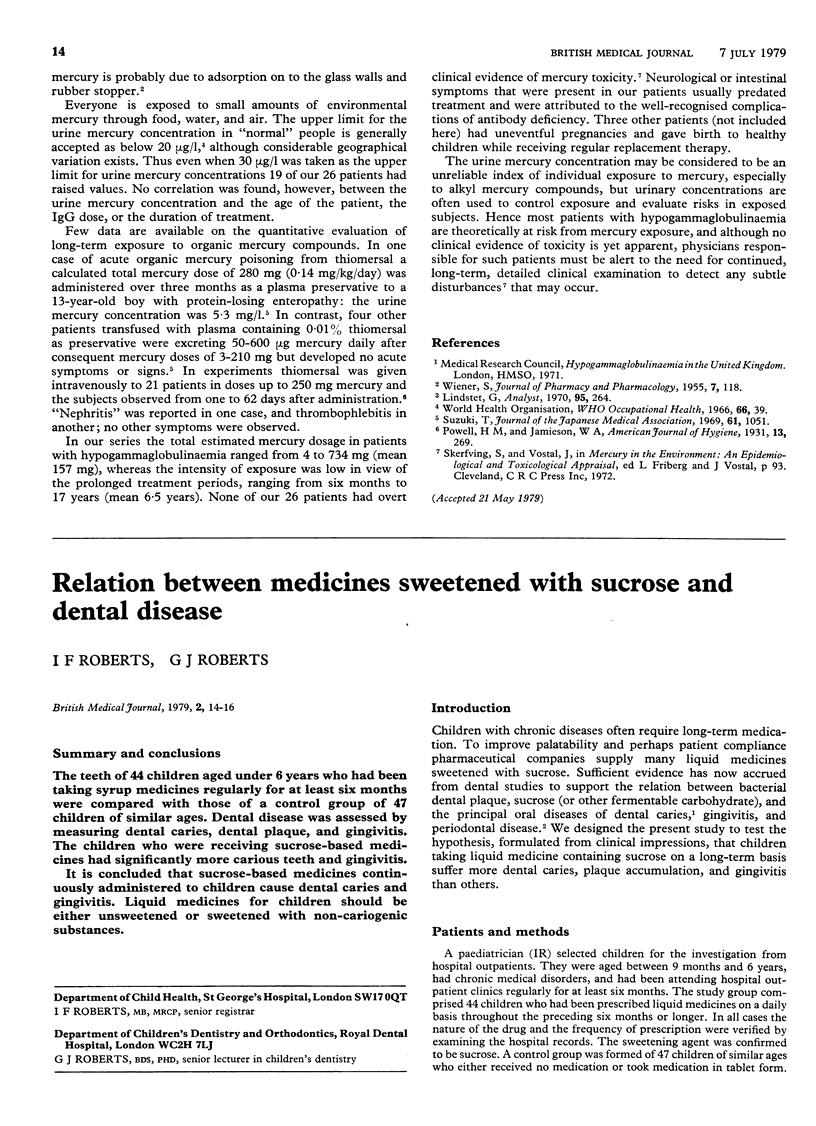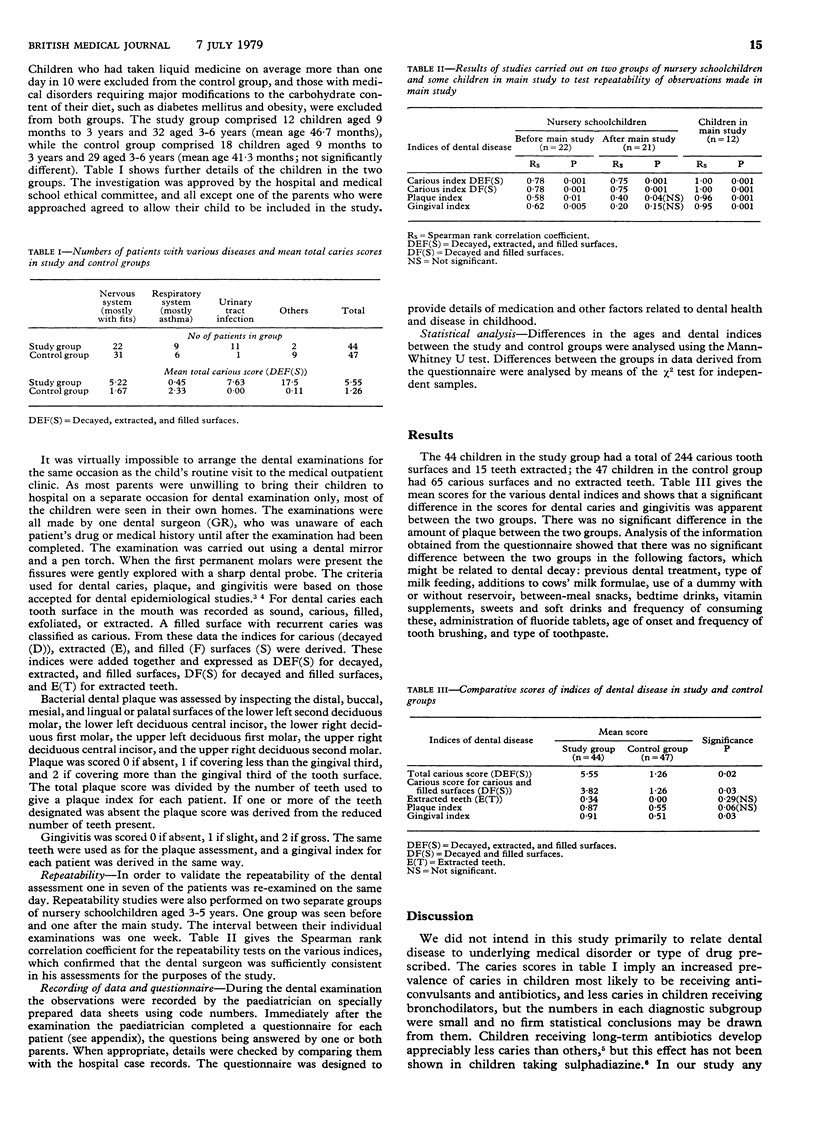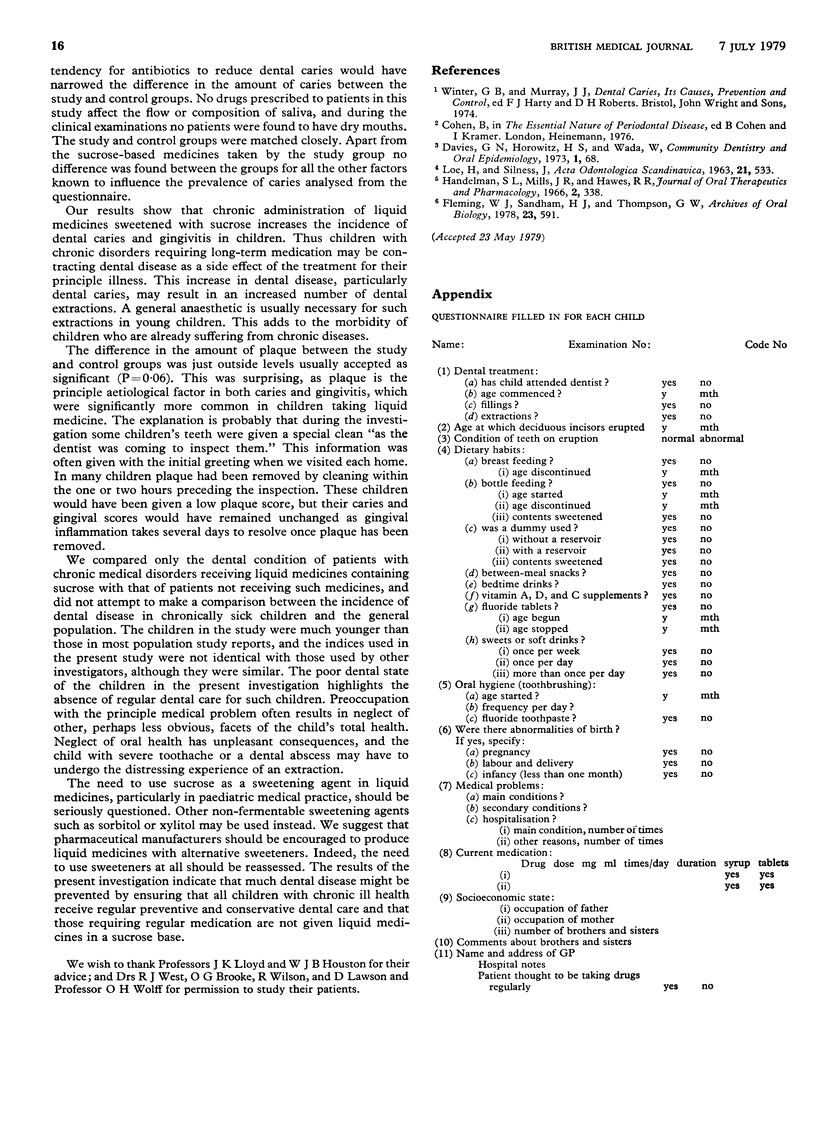Abstract
The teeth of 44 children aged under 6 years who had been taking syrup medicines regularly for at least six months were compared with those of a control group of 47 children of similar ages. Dental disease was assessed by measuring dental caries, dental plaque, and gingivitis. The children who were receiving sucrose-based medicines had significantly more carious teeth and gingivitis. It is concluded that sucrose-based medicines continuously administered to children cause dental caries and gingivitis. Liquid medicines for children should be either unsweetened or sweetened with non-cariogenic substances.
Full text
PDF


Selected References
These references are in PubMed. This may not be the complete list of references from this article.
- Davies G. N., Horowitz H. S., Wada W. The assessment of dental caries for public health purposes. Community Dent Oral Epidemiol. 1973;1(2):68–73. doi: 10.1111/j.1600-0528.1973.tb01862.x. [DOI] [PubMed] [Google Scholar]
- Fleming W. J., Sandham H. J., Thompson G. W. Lack of effect of long-term sulphadiazine therapy on dental caries in children. Arch Oral Biol. 1978;23(7):591–592. doi: 10.1016/0003-9969(78)90277-7. [DOI] [PubMed] [Google Scholar]
- Handelman S. L., Mills J. R., Hawes R. R. Caries incidence in subjects receiving long term antibiotic therapy. J Oral Ther Pharmacol. 1966 Mar;2(5):338–345. [PubMed] [Google Scholar]
- LOE H., SILNESS J. PERIODONTAL DISEASE IN PREGNANCY. I. PREVALENCE AND SEVERITY. Acta Odontol Scand. 1963 Dec;21:533–551. doi: 10.3109/00016356309011240. [DOI] [PubMed] [Google Scholar]


